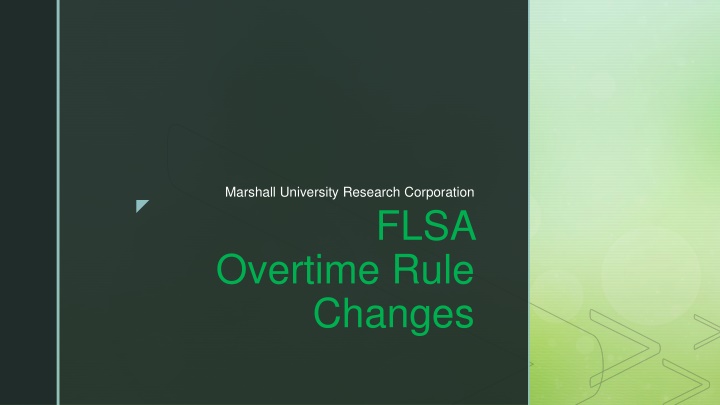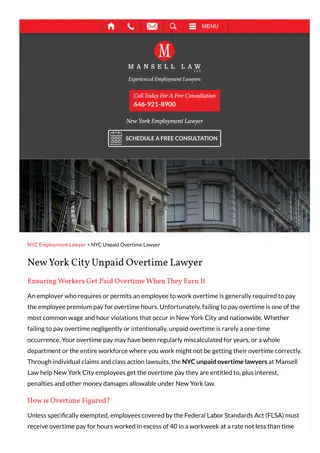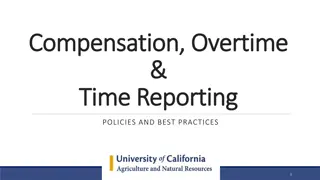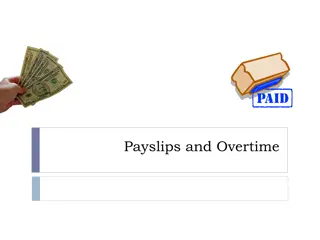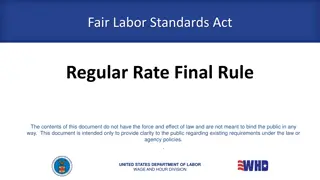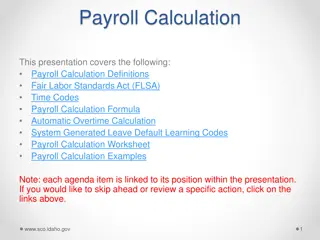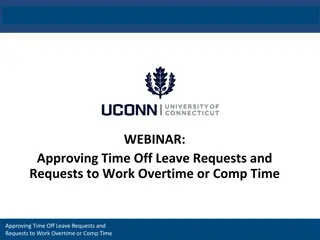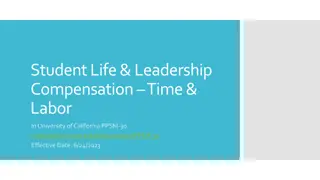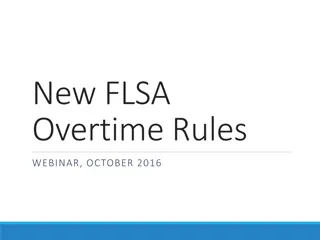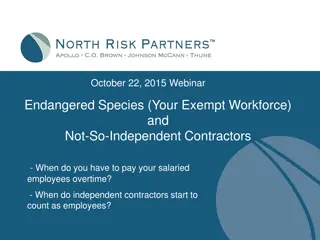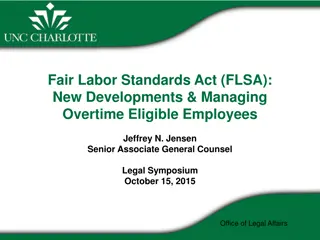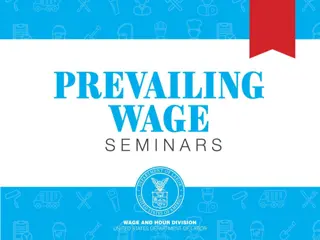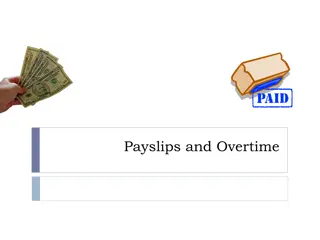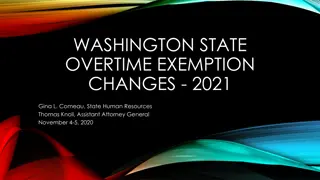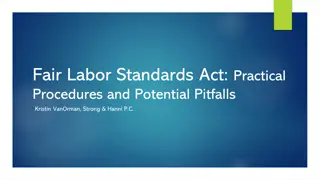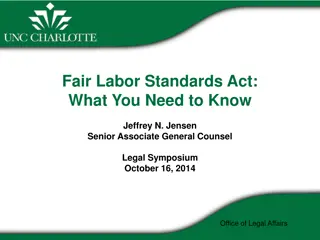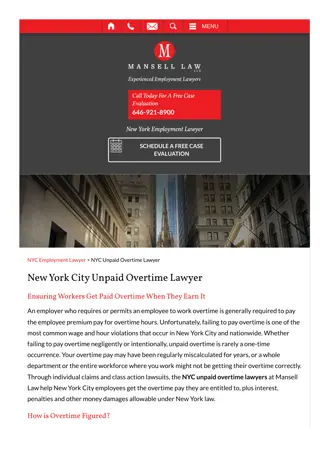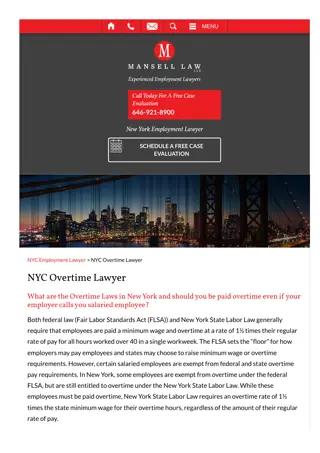Impact of FLSA Overtime Changes on MURC Staff
The 2019 FLSA overtime rule changes have significant implications for Marshall University Research Corporation (MURC) staff. The changes affect salary thresholds for exempt employees, leading to more non-exempt employees eligible for overtime pay. Managers need to closely monitor overtime, and converted employees must now track and be compensated for all hours worked beyond 40 per week.
Download Presentation

Please find below an Image/Link to download the presentation.
The content on the website is provided AS IS for your information and personal use only. It may not be sold, licensed, or shared on other websites without obtaining consent from the author.If you encounter any issues during the download, it is possible that the publisher has removed the file from their server.
You are allowed to download the files provided on this website for personal or commercial use, subject to the condition that they are used lawfully. All files are the property of their respective owners.
The content on the website is provided AS IS for your information and personal use only. It may not be sold, licensed, or shared on other websites without obtaining consent from the author.
E N D
Presentation Transcript
Marshall University Research Corporation FLSA Overtime Rule Changes
OBJECTIVES & KEYPOINTS FLSA CHANGES 2019 IMPACT ON MURC STAFF FOLLOWING NON-EXEMPT EMPLOYEE RULES
FAIR LABOR STANDARDS ACT (FLSA) FLSA - First enacted in 1938, established tests that must be met in order for an employee to be exempt from overtime pay eligibility. Tests/Rules for classifying covered employees as exempt or nonexempt Requires overtime compensation to nonexempt employees for all hours over 40 in a workweek Usually 1.5 times regular pay rate
WHAT ARE THE 2019 OVERTIME CHANGES? Raised minimum salary required for employee to be classified as exempt from overtime Raising the standard salary level from the currently enforced level of $455 per week to $684 per week (equivalent to $35,568 per year for a full-year worker); Raising the total annual compensation requirement for highly compensated employees from the currently enforced level of $100,000 per year to $107,432 per year; Allowing employers to use nondiscretionary bonuses and incentive payments (including commissions) paid at least annually to satisfy up to 10% of the standard salary level, in recognition of evolving pay practices; and NOT pro-rated for part-time. The final rule is effective on January 1, 2020.
HOW DOES THIS CHANGE IMPACT MURC? INCREASED nonexempt (overtime eligible) employees; exempt employees who fall below $35,568 will be converted to salary/non- exempt pay class MANAGERS will have to manage overtime more closely; Overtime will need to be approved and budgeted in advance. EMPLOYEES converted from Exempt to Non-Exempt will have to be paid for all hours worked over 40 in the work week. Checking email and doing work outside of the normal work schedule will change the way these converted employees accomplish the day to day work after January 1, 2020.
HOW DOES THIS CHANGE IMPACT MURC? (cont d) Converted Employees are now eligible for overtime They will be provided with a new timesheet and must track hours worked each day Overtime pay (time and a half) for work over 40 hours per week
TIME MANAGEMENT: NON-EXEMPT EMPLOYEES All hours over 40 in the workweek are eligible for 1.5 times salary All hours over 37.5 in the workweek are eligible for 1.0 times salary or compensatory time paid. Will discipline repeat offender who work overtime without approval after receiving notification Managers are responsible to ensure employees are working as directed & reporting time properly
MANAGE OVERTIME NON-Exempt Employees Establish procedures and Expectations Overtime approval processes Rules for working and tracking working outside of normal workday. Flex Time may be used to avoid accruing overtime (within workweek) Unauthorized work performed (with or without Supervisor s knowledge) Employee arrives early to work & begins working Meal time if an employee is not free from work duties
TRAVEL: NON-EXEMPT EMPLOYEES Employees who travel during the workday must be paid. Employees must be paid for time spent working regardless of location or time of day. Includes after hours work from home/hotel (emails/texts/calls) NOT PAID Regular travel to and from work Downtime while away from home Time spent as a common carrier passenger after working hours
QUESTIONS? If you or your employees have questions, please reach out to MURC Human Resources or MURC Payroll directly Coria Kent, HR Coordinator kent1@marshall.edu Tammy Brumbaugh, Senior Payroll Administrator Brumbaught@marshall.edu
